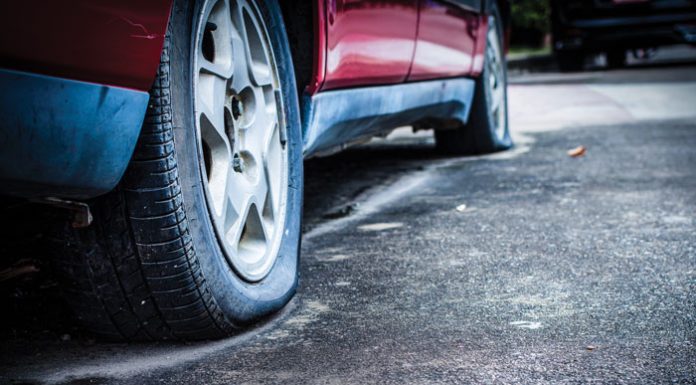Thousands of women and girls around the world have been captivated by the music of Bracha Jaffe. Her melodious voice and soulful performances keep audiences spellbound, but what many of her fans don’t know is what Bracha does for her day job. And how did she get to where she is today?
The first time I spoke to Bracha was early on a Sunday morning, having managed to catch her during a brief quiet moment in her otherwise busy schedule. The second time we spoke, it was nearly 11 p.m., and Bracha was driving home from a performance in Queens.
“I have to pick up my daughter,” she tells me. “Wait a second, let me check my GPS. I don’t want to get lost.” A second later she’s back. “My daughter had a practice session. She’s going to be participating in [singer] Devorah Schwartz’s show.”
We laugh at the juxtaposition of these two sides of Bracha’s life. “This is what my life is really like!” she says. “At night I can be up on stage performing in front of hundreds of people, but the next morning I’m out there carpooling along with everyone else.
“My youngest child, who’s four years old, recently saw me perform for the first time, and he couldn’t get over it. The next morning, he told his friend in the car, ‘Did you know that my mommy is the best singer in the whole entire world?’ When I noticed his friend eyeing me in confusion, I explained that I’m a singer and then put on one of my songs.”
When did Bracha Jaffe’s love for music begin?
“I grew up in Brooklyn. My mother is a born-and-bred Yerushalmi. My father’s family is American, but they moved to Israel when he was very young. My parents and older siblings moved to New York from Israel for my father’s job shortly before I was born. I remember our home as a very warm and happy place. My mother was a teacher, and I have memories of going to work with her whenever I had an off day from school. She would take out her accordion and I would watch, totally entranced, as she taught her students through song and music.
“My father is a baal tefillah who also plays the trumpet and still practices two to three hours a day. My brothers are also very musical. One is a chazzan and another plays the guitar. I’m an only girl with three older brothers, so I got a lot of attention when I was growing up.”
During much of her childhood, Bracha was the only one home as there are nine years between her and the youngest brother. “I started piano lessons at the age of five. Many people ask me when their children should begin music lessons. I think five is a good age because I do recommend starting early. Also, piano lessons are foundational and the building block for other instruments, so even if you want your child to learn a different instrument, it’s a good idea to start with piano.”
She also took a lot of other extracurricular classes. “My parents really wanted to nurture my interests. If I showed an interest in art, they signed me up for art classes. Same with dance.
“I do want to mention that my parents are divorced. I’m very close and connected to both of them, because from the moment they separated, they always put their children first. When it came to parenting they were very united, so I felt that I was raised in a stable environment. My life was very consistent. My father was even able to come visit all the time. My mother was completely fine with it.”
It’s wonderful to hear Bracha talk about her upbringing in such positive terms, and it is a testament to her parents’ efforts.
In high school, Bracha shone in the arts more than in academics. “Music and the arts kept me grounded. I was never a particularly scholarly kid, not because I couldn’t be, but because I was a creative person. I blossomed in high school because I was using my talents in a productive way. So many kids these days who are creative are pegged as ‘artsy,’ and it’s not necessarily looked at as a good thing. But it really is a big maalah!
“Every kid is different and excels in a different way. Some kids aren’t great at learning, but they can sit for hours at a keyboard. So why not get them a keyboard? They could occupy themselves with productive pursuits that interest them. My brothers used to go to Sam Ash with my father whenever they needed to get out a bit, and they would stay there for hours.
“When you give children the motivation to succeed in creative ways, you’ll be amazed by what they can accomplish.”
Musical instruments and lessons can be pretty expensive, but Bracha says that you have to think out of the box. “My producer, Shai Bachar, who is tremendously talented, has worked with many musicians over the years. One of them is a very well-known drummer, and my producer told me the story of how they first met.
“‘Around 20 years ago, I walked into a store that sells musical instruments and heard someone drumming in the next room. I went over to see who this awesome musician was and learned that this kid used to come to the store every day to play the drums.’ He recognized his potential, and over the years the boy worked his way up until he had a respectable career in music.”
Not everyone who pursues the arts does so for fame or a career; many just want to develop their talents. Bracha is often asked what purpose there is in taking voice or music lessons if you’re not interested in using your skills professionally.
“Whether or not you take your talents to the stage, when you develop your skills, you’ll find that doors open to you in unexpected ways. Perhaps you’ll find inner peace or satisfaction, or you’ll gain the confidence you need to pursue new avenues you hadn’t considered. My singing career started out very small, but I kept the door open and it led me down a path I would never have imagined for myself.”
Bracha’s first gig paid $100 for four hours of work. She was 16 years old, and someone asked if she would perform at a bas mitzvah. She agreed. Over time, more people hired her to sing at bas mitzvahs and other types of parties. She remembers with a chuckle her first job as a married woman. “The job was at a Chabad House in New Jersey, and they said they would pay me $600. I’ll never forget how excited my husband and I were as we loaded the car up with equipment that night. I think we even rented speakers for $100, and we probably spent $50 on gas and tolls, but our joy over that paycheck is something I’ll never forget.”





















